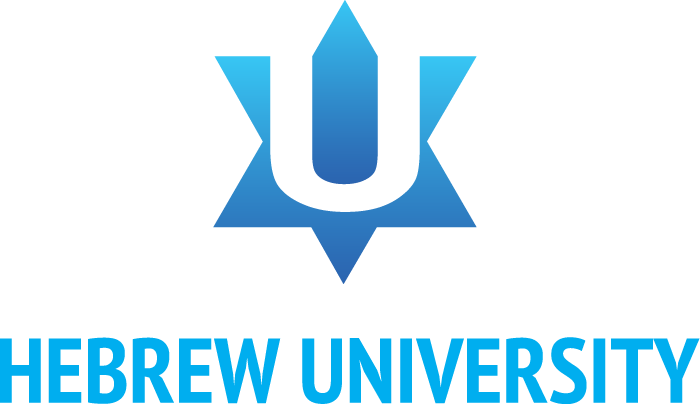
The Doctor in Philosophy in Religious Studies is part of the Social Science division of our university.
The program requires 60 credits religious courses. The program requires internships as part of the curriculum. Approved of Department Head is required to be part of the program.
Program Outline:
3 Credits
Course Description:
This course aims to provide students with theories and practices of leadership and ethics that will assist them in coming into a sense of who they are as transformational leaders and to prepare them for the multiple contexts in which they will lead. Students will have a growing sense of their public role in respect to religious and faith-based communities and to religion as it operates in a variety of contexts.
3 Credits
Course Description:
This course aims to discuss current issues of Western civilization religious I.
3 Credits
Course Description:
This course aims to discuss current issues of Western civilization religious II.
3 Credits
Course Description:
Intended for organ majors, but open to others, this course covers repertoire, organ building and maintenance, technique, performance practice, and keyboard skills (sight-reading, score-reading, transposition, harmonization, improvisation and continuo). This is a two semester course. MSM organ majors must enroll in both semesters.
3 Credits
Course Description:
Open to all students who are interested in singing. Participation in one weekly chapel service, all concerts, and tours. Credit given only on completion of the second consecutive semester’s work.
3 Credits
Course Description:
Open to all students who are interested in singing. Participation in one weekly chapel service, all concerts, and tours. Credit given only on completion of the second consecutive semester’s work.
3 Credits
Course Description:
Graduate Corequisites: REL TC 801.
Students will critically engage with materials and approaches in the principal areas of present- day church musicians including: choral and vocal techniques, conducting, the organ and other instruments, alternative and contemporary worship, and professional concerns. This course will enable students to gain greater competencies needed to function at optimal levels as a music minister or director in worship, religious, pastoral and educational settings. This will be accomplished through engagement with the methods and materials of church/synagogue (sacred) music and worship.
3 Credits
Course Description:
Audition required. Schedule includes Sunday worship in Marsh Chapel and several major concerts.
3 Credits
Course Description:
Study of the history of congregational song from biblical practice to the present day. Emphasis will be given to the development of theological, textual, and musical patterns, with special attention to incorporating both historic and emerging materials in worship. Strongly recommended for all MSM students; valuable for MDiv and doctoral students with special interest in worship.
3 Credits
Course Description:
In an increasingly pluralistic society it is essential to have some understanding of the beliefs and worship patterns of other religions and to be able to engage in dialogue with them. This course utilizes the Pluralism Project at Harvard to explore new forms of interfaith engagement. Seven weekly lectures introduce the issues surrounding interfaith work and a basic understanding of the tenets and practices of five major religions. Site visits (to Hindu, Muslim, Sikh, Buddhist and Jewish worship services) offer first- hand experiences and the opportunity for discussion and interaction with religious leaders and lay people.
3 Credits
Course Description:
An examination of the legacy of music written for liturgical and non-liturgical use, using longer text, tracing the origins, formulary, and development of the texts (including discussion of the authors). Case studies will form the basis of further inquiry. Cultural, social and historical context of the first performance will be discussed, along with an examination of the theology behind the text setting. There will be comparative analysis of other examples of the same genre, discussion of post-Reformation changes in text and approach, and national differences in style and technique.
3 Credits
Course Description:
In the course, students will explore classic and contemporary spiritual autobiographies. These autobiographies reveal the diverse paths of religious seekers, the crises and epiphanies that became focal points of meaning and revelation. Students will learn about the practices of faith that sustained and challenged religious people from Augustine to Teresa of Avila to Tolstoy. Through close, empathetic, and critical examination of the texts, students will reflect on their own spiritual journeys and identities. They also will engage first-hand in the crafting of spiritual autobiography, and students will have the opportunity to work intensively in small groups throughout the writing and sharing process. Throughout the course, students will explore potential uses of spiritual autobiography as pathways of discernment and growth in congregational and retreat settings, small faith groups, spiritual formation and companionship.
3 Credits
Course Description:
These small groups are designed to provide mutual support in spiritual journeying and questing, the exploration and sharing of spiritual life and practice, and of maintaining spiritual balance and integration as an intrinsic dimension of one’s scholarship and vocation.
3 Credits
Course Description:
These small groups are designed to provide mutual support in spiritual journeying and questing, the exploration and sharing of spiritual life and practice, and of maintaining spiritual balance and integration as an intrinsic dimension of one’s scholarship and vocation.
3 Credits
Course Description:
An introduction to the theology and practice of preaching within the context of Christian ministry and worship. Students develop skills necessary for preparation, composition, delivery, and critique of sermons. Required of all M.Div. students in the Pastoral Ministry track.
3 Credits
Course Description:
Covers the polity, structure, procedures, and ritual of the United Methodist Church along with the basic structure of and ecclesial concepts contained within its Book of Discipline.
3 Credits
Course Description:
Supervised practice of ministry in a congregational setting or community agency combined with participation in a peer reflection-learning group focused on the integration of theology and practice.
3 Credits
Course Description:
Continues and presupposes REL TC 801 in the following semester.
3 Credits
Course Description:
The course allows the student to work and complete the thesis. It needs to be approved by the instructor the topic.
Total Credits Hours
60
Disclaimer: Hebrew University and Jewish University System (JUS) reserve the right, because of changing conditions, to make modifications of any nature in academic programs and requirements of the university and its constituent colleges without advance notice. Students are advised to consult regularly with an academic advisor concerning their programs of study.


